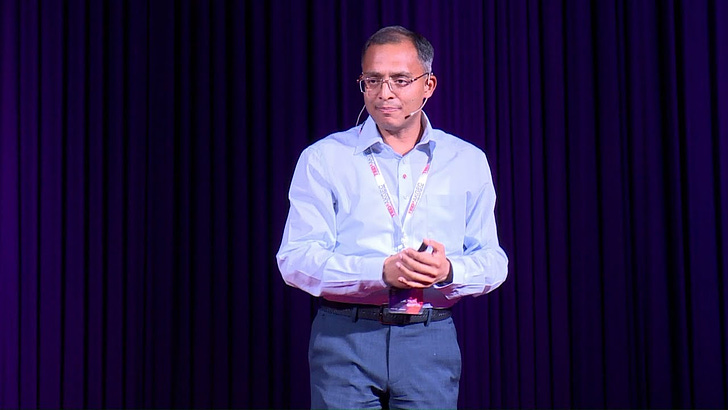Namaste ! Hope you are doing well.
This post is about a topic that has been in the news for a while - apparently young people suffering heart attacks out of the blue. I had no plan of writing about this topic but my interest was piqued when a member “धर्मो रक्षति रक्षितः” posted a video in a WhatsApp group. The video is linked below. Do watch the interesting video to understand what this is all about. Dr Mohit Gupta talks about a case starting at about 9 minutes but do watch from the beginning to know the personal situation of the Dr and the power of mind over matter. You will realize its time well spent.
The video talks about the story of how a young man suffered a heart attack and landed up in Dr. Mohit Gupta’s hospital at night. Upon taking care of the emergency situation, the doctor was puzzled at the fact of this person having a heart attack when he had no obvious or apparent risk factors. He then conducted a study of such individuals and came out with conclusion -
Telomere length is an independent marker of mortality ( other prior studies exist on this topic, but Dr MG was first to study among Indians)
Psychological stress factors affect telomere length
Want to know what is a telomere? Its explained at the bottom of this post.
The published study is linked below, and my critique follows.
1. Out of 233 cases, Dr Mohit has removed 156 cases because they had other co-morbidities - diabetes, high BMI etc. this means that straightaway 67% cases are removed! On the flip side though the test was looking at cases which had no apparent risk factors, so it makes sense to ignore the ones with obvious risk factors. On the other hand, we do not know about the data from these excluded cases since they all had suffered MI at an early age.
2. This study is a "first" only insofar as investigating Indians is considered. There are other studies as far back as 2012 where Russians/Czech/Italian investigators have looked at *telomere* data in case of MIs.
3. There are lot of parameters considered in the profile among the 77 people who remained in the study that had MI. Cholesterol, bp etc. were all similar to the control group which had not suffered any MI. The average age of the populations in both groups was about *35* years.
4. The most striking thing that stood out in the profile was the *Ejection fraction* which was 39% in case of the MIs and 60% in case of healthy controls! This is quite a large difference. I wonder why this was not considered a factor in the conclusion.
5. The telomere length is the focus of the study and indeed the difference is stark. Healthy controls had a T/S of 0.7 and the MIs had a ratio of 0.2!!!
6. What is surprising is that the Indian population seems to have a shorter telomere length even among healthy individuals. The numbers for foreign studies were closer to 1 for healthy people and 0.7 for the ones that suffer heart attack. Among Indians, the healthy ones have 0.7 and the ones suffering MI had 0.2. I will research this further.
7. So, it does appear from multiple studies that telomere length is a marker for risk factor of cardiovascular event.
8. Dr Mohit's team does not appear to have done work on the psychological basis for telomere shortening. There are other studies and research papers that have valuable information on this topic. But yes, depression is a factor in ageing and telomere shortening is a good marker.
9. Telomerase is a hormone that normalizes telomere length and is rejuvenative. It is helped by diet, exercise, not being depressed or stressed, lower inflammation, not being insulin resistant, all the usual good things needed for health anyway.
Telomere.
What is it? Telomeres are DNA–protein complexes that cap chromosomal ends of eukaryotic cells, conferring chromosomal stability (Blackburn 1991, Blackburn et al. 2015, Effros 2009, McElhaney & Effros 2009).With each cellular division, telomeric DNA terminal regions are not fully replicated. If not counteracted by cellular repair mechanisms (e.g., telomerase), progressive telomere attrition can lead to cell death or cell cycle arrest, resulting in cellular senescence (Effros 2009). Telomerase is a critical enzyme produced by cells and it functions to add DNA sequence repeats to telomere regions, thereby preventing the constant telomere attrition incurred with each cell division or from biochemical stress mediators.
Concluding,
Telomere is an independent marker of cardiovascular risk.
Telomerase can keep the length of telomerase healthy and a healthy lifestyle.
Stress, especially childhood stress, affects length of telomeres and managing/avoiding stress goes a long way in longevity and health.
References:
https://pubmed.ncbi.nlm.nih.gov/33357657/


